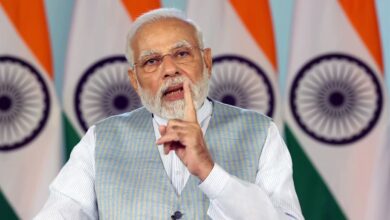The BJP plans to utilize the 160 Lok Sabha seats they lost to run targeted campaigns before the 2024 elections
It is thought that the BJP has carefully planned to have public events featuring Prime Minister Narendra Modi in advance of the impending general elections next year. These events will be held in 160 Lok Sabha seats that the party lost by a razor-thin margin in the last election.
On September 1, it is expected that JP Nadda, the leader of the BJP, would evaluate the current Lok Sabha Pravas Yojana. With this approach, Union Ministers will be held accountable for supporting more than 160 vulnerable parliamentary districts that the party was unable to win in the 2019 elections. However, there has been no formal confirmation of this encounter.
The BJP’s opponents lost in 160 Lok Sabha seats nationally in the 2019 elections despite making a determined and competitive effort, according to the party.
The Bharatiya Janata Party (BJP), which received more than 50% of the vote share overall, won in 224 Lok Sabha seats in the 2019 Lok Sabha Election, according to a detailed study.
A key factor in these triumphs was Uttar Pradesh, which contributed the most seats with 40, closely followed by Gujarat with 26, Madhya Pradesh with 25, Rajasthan with 23, and Karnataka with 22. Notably, the BJP came only 48 seats short of securing the 272 seats necessary to win a majority in the 543-member Lok Sabha in the 2019 election. This statistic suggests emphatically that it will be difficult to depose the saffron party from its strongholds, even in the face of opposition coalitions.
A senior party official who wished to remain anonymous said that the BJP launched special campaigns to increase the chances of victory for BJP candidates while also attempting to organize public rallies for the Prime Minister in the identified vulnerable Lok Sabha constituencies.
The BJP coordinated PM rallies by merging two or three constituencies in an effort to win 400 seats. The rallies were aired on bigger screens at several places using intricate arrangements. Sunil Bansal, Tarun Chugh, and Vinod Tawade made up the three-person team the party assembled to handle the chores pertaining to the 160 seats.
The size of the BJP’s victory in 2019 shows unequivocally that the party not only maintained the successes it obtained in 2014 but also succeeded in broadening its base of support.
A political party often wins support from a broader range of people when it wins an election with a higher percentage of the overall vote (as seen by the BJP’s climb from 31.1% to 37.4% in 2019). However, a review of the National Election Studies 2019, a poll that was done, shows that the BJP made significant gains particularly among demographic groups where it has historically had little support.
The party successfully addressed concerns raised by the Dalit community over a number of issues, including amendments to the Scheduled Castes/Scheduled Tribes Act and localized inter-caste violence. Notably, Dalit support for the BJP increased in this election, rising from 24% in 2014 to 34% in 2019, indicating that Dalits’ support for the party has grown.
The disparity in BJP support between lower and higher Other Backward Classes (OBCs) reduced from 12 percentage points in 2014 to 7 percentage points in this election, mostly owing to increasing support from upper OBCs. A similar trend was seen among the upper OBCs. The only group where the BJP did not make major gains was among Muslims, whose vote share for the party stayed almost steady at 8%.







